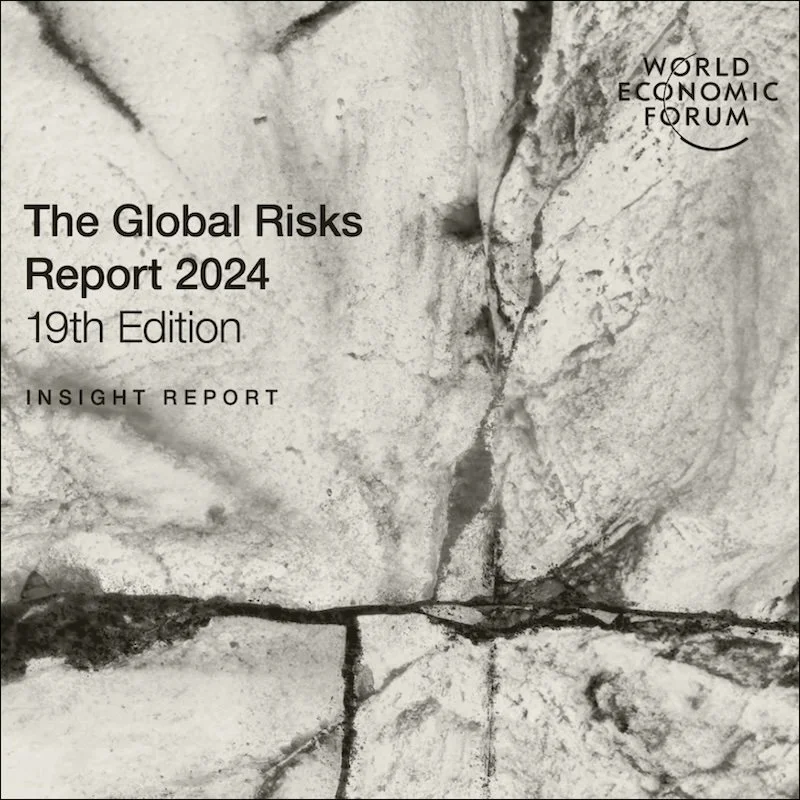Recap: 2024 HBS+MIT Tech and NatSec Conference
Against the backdrop of escalating geopolitical tensions and evolving security threats, students from Harvard Business School (HBS) and the Massachusetts Institute of Technology (MIT) hosted the 2024 Technology and National Security Conference which provided a platform for stakeholders to delve into pressing issues at the nexus of business, technology, and national security.
Throughout the conference, experts, policymakers, industry leaders, and academics engaged in insightful discussions, shedding light on key challenges and opportunities in safeguarding collective security interests while navigating the complexities of an increasingly interconnected world.
In the following article, Tip Myers and Haley Spletzer from Marque Ventures break down some of the predominant themes discussed at the event.
US Ukraine Funding: A Global Litmus Test
The conference opened and closed with a sobering reflection on the global implications of the US' decision to fund Ukraine, particularly in the context of the Indo-Pacific region. Attendees emphasized that while the focus was on Indo-Pacific dynamics, the world's eyes were closely watching the US' stance on Ukraine as a litmus test of its commitment to defending democratic values and principles.
While other regions of the world sit in anticipation, European leaders recognize the need to address the Ukraine crisis independently amidst uncertainties regarding US involvement. Panelists also emphasized Congress’ role in ensuring that the status quo of prolonging FY24 Continuing Resolutions is no longer viable. The consensus among participants was clear: the US must reaffirm its leadership role in upholding the international order and supporting allies in the face of external aggression.
the US must reaffirm its leadership role in upholding the international order and supporting allies
Autonomy: Transformative Frontiers
Discussions at the conference delved into the transformative potential of autonomy across various domains, particularly in maritime use cases. For example, companies such as Leidos' showcased in a US Navy deployment, its transformative potential in enhancing naval operations by streamlining competing demands on warfighters and modernizing security strategies through advanced unmanned systems. Experts highlighted that autonomy extends beyond acting as an augmentee to a warfighter; it also plays a crucial role in lessening a warfighter's cognition bandwidth demands, freeing up operator capacity.
Policy makers noted the US government's approach to responsible use of autonomy includes policies like the Department of Defense's Directive 3000.09, which emphasizes human control and ethical considerations in the development and deployment of autonomous weapons systems. In the deterrence and operational contexts, maritime autonomous platforms were underscored as critical to modernizing security strategies.
Drone multi priority was also identified as an area where autonomy excels, enabling humans to serve as macro-managers while allowing autonomy to function as micromanagers.
Information Warfare: An Emerging Landscape
A dedicated section of the conference was devoted to the evolving landscape of information warfare. Participants emphasized the need for cohesive strategies and collaboration across commands, agencies, and departments, given the disparate authorities and the increasing emphasis on information warfare as a critical component of national security.
There were discussions about the necessity of establishing an Information Warfare Command akin to Cyber Command and highlighting the importance of research funding and acquisition authority in this domain.
Additionally, concerns were raised about the Department of State's current funding for defending against information attacks by state actors, emphasizing the need for adequate resources in this area.
Embedded within these discussions was the timely insight provided by the Global Risks Report 2024, published by the World Economic Forum, which highlights the most pressing global risks and challenges facing the world today, offering insights for policymakers, business leaders, and the international community.
The Global Risks Report 2024, highlights the most pressing global risks and challenges facing the world today
Defense Investment: Europe Expanding, Growth Still on the Fence
International Growth: Amidst discussions on security challenges, the conference also provided insights into growth opportunities in the defense sector in Europe. The NATO Innovation Fund (NIF) was highlighted as a notable example of foreign defense growth with 23 of the 32 countries currently in the alliance.
The NIF is an independent venture capital fund with a budget of EUR 1 billion, aimed at backing ambitious entrepreneurs who are pioneering emerging and disruptive technologies. Notably, the US is absent from the current Limited Partner countries in the NIF; however, NIF representatives were optimistic about the US and other NATO alliance countries' participation in the near future.
Domestic Growth: Despite some hesitancy in later-stage rounds of startup funding, investors expressed long-term bullishness about certain parts of the defense market. Growth and buyout panelists expressed their increasing willingness to consider the case for additional technology areas on a case-by-case basis while emphasizing their continued skepticism of early-stage “innovation” in technology areas or markets where early-stage enthusiasm doesn’t appear to reflect market sizing or investment opportunity.
Investors often underestimate the potential for profitable exits in defense-focused companies due to misconceptions about the sector's market dynamics and the longevity of government contracts as outlined in earlier Marque Ventures’ articles on Defense Venture Math (Part I & Part II). Ultimately, growth-stage investors are looking to DoD purchases to see what technologies make sense for investment.
Talent Management: Nurturing the Next Generation
Talent recruitment, management, and ongoing technical education are foundational to national security readiness. Despite significant investments in new technologies and recruiting military personnel, there's a critical gap in providing continuous education tailored to emerging technologies.
Overcoming barriers in talent acquisition and fostering collaboration between private and public sectors is essential for leveraging diverse skill sets aligned with American values. Addressing workforce development challenges, particularly in providing training for jobs directly relevant to national security, is crucial. Participants emphasized the need to enhance permeability between private and public industries to attract and retain top talent.
The abrupt cancellation of funding for the Defense Ventures Program demonstrates that the Department of Defense still does not understand the gravity of needing a skilled workforce to drive innovative initiatives effectively.
In a recent release from the Army, plans to eliminate 24,000 positions amid ongoing recruitment challenges, highlights the challenges beaches have to address staffing issues within the military branch. This underscores the urgent need for a strategic focus on talent development to meet the evolving demands of national security.
Fostering Collaboration for Collective Security
The HBS+MIT Technology and National Security Conference is instrumental in fostering dialogue and collaboration on critical national security issues, serving as a vital platform for stakeholders to exchange insights, explore new strategies, and forge innovative solutions to address the ever-evolving global security landscape.
As global security challenges evolve, such forums play a pivotal role in facilitating partnerships and innovation. Stakeholders must sustain this momentum and take bold, proactive steps in addressing the complexities of modern security, asserting leadership in safeguarding democratic values and principles on a global scale.
Tip Myers is a Partner at Marque Ventures. He is a Marine Veteran with an MBA from the Wharton School and a B.S. from the United States Naval Academy.
Haley Spletzer is a USAF Contracting Officer currently serving as an Education with Industry fellow embedded at Marque Ventures. She holds a B.S. from the United States Air Force Academy.



